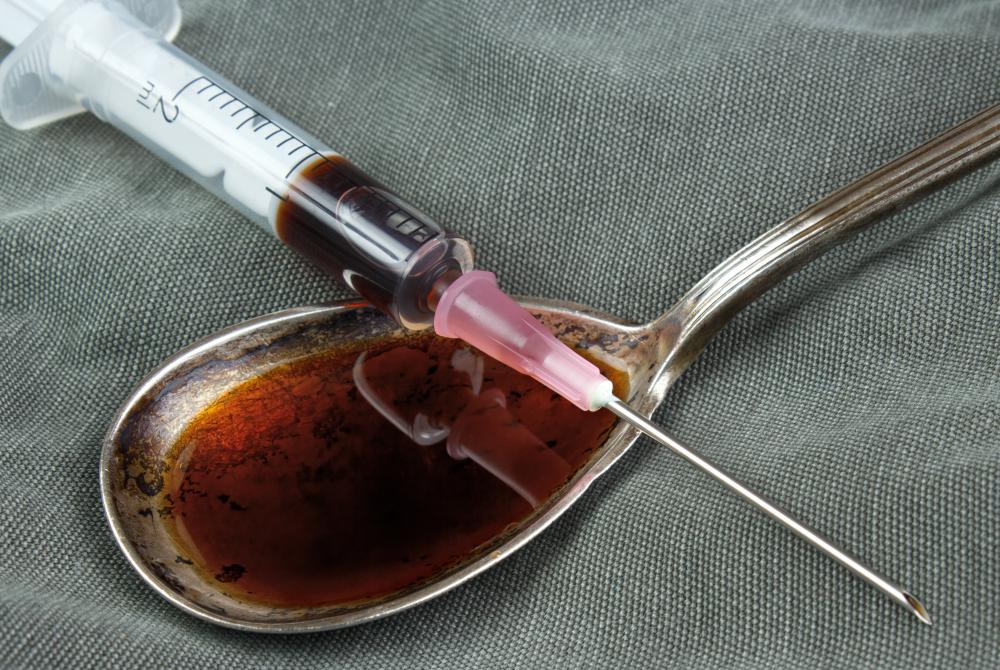At TheHealthBoard, we're committed to delivering accurate, trustworthy information. Our expert-authored content is rigorously fact-checked and sourced from credible authorities. Discover how we uphold the highest standards in providing you with reliable knowledge.
What is Apathy?
Apathy is an emotional state characterized by a lack of emotion or interest either toward a particular subject or toward all elements of one's life. Characteristics of apathy include a lack of passion and motivation, the absence of excitement or interest in any particular aspect of one's life, and a lack of concern for one's emotional and social well-being. Such a condition may be purely psychological in origin, or it may originate from a variety of neurological disorders. It can also be caused by the regular use of powerful mind-altering drugs.
The modern use of the term "apathy" started during World War I. Soldiers who returned from the war after experiencing the horrors of trench warfare, endless shelling, and, in many cases, watching friends and companions die became emotionally disconnected and had little interest in their own lives. Various forms of trauma, such as witnessing a horrific crime or fighting in a war, can lead to this lack of emotion. People returning from such experiences often find that nothing seems to matter in comparison to whatever it was that they experienced or witnessed. There is no simple cure for the indifference caused by trauma, though various forms of therapy are able to help people in some cases.

Apathy is commonly one of many symptoms of a larger psychological or neurological disorder; treating the disorder can sometimes alleviate the feelings of indifference. Such conditions include Alzheimer's disease, schizophrenia, bipolar disorder, and hypothyroidism. Depression is also commonly characterized by indifference and a lack of emotional engagement with people and activities, though the connection between depression and apathy has not been deeply explored. Similar symptoms have also been connected to the use and abuse of powerful mind-altering drugs such as cocaine and heroin. Whether through physical effects on brain chemistry or through purely psychological effects, users of such drugs sometimes find that they care very little about all elements of their lives that are not connected to the substance to which they are addicted.

The term is also commonly used in the social and political sciences as well. "Voter apathy," for instance, describes a condition in which a significant part of a population chooses not to vote because they are not concerned with the outcome of an election. People may choose not to vote because they feel that their votes have little chance of significantly affecting the outcome of the election or that the outcome of the election is insignificant.
AS FEATURED ON:
AS FEATURED ON:

















Discussion Comments
I had troubled and stressful years in school. I only felt a sense of self after graduating from school and facing the world. Anyway, I proved to myself that I was good enough for almost everything a guy in his early 20's might be interested in one year after school.
While I was abroad, I lost control over my acne, failed a year due to some silly mistakes and quit drinking, which brought my social life to a very primitive level.
Repeating the year at a different Uni and facing all these crucial changes suddenly started to affect my self-image. What helped was the visualisations I had about a bitter past (it was really harsh at the post school days, I used to cut myself to get over it) and a pathetic future (my dreams vanished). And hence, all the motivation, the power, the imagination, the abilities, the skills, the achievements, my senses, my emotions and eventually my excitement about life was gone with it.
I ended up feeling bad and knowing that I am not doing anything about it. I then turned my mind off. I can’t remember how I arrived at that conclusion or if it just happened. I started to get confused and decision making was very hard, even for something like shopping, because I had mixed emotions about almost everything. I had sometimes irrelevant and inappropriate emotions. I underrated the size of my penis, I anticipated bad marks, I doubted my English skills. I even found it hard to speak to people on the street, and then it was hard to speak my native language!
Then I lost connection with myself. I was just a piece of meat on the sofa, that fellow in the street who smiles to people and feels cold and empty inside.
My feelings were muted to 0, nil, nothing, no fear, no worry, no joy and no aspiration. I was nothing inside, it was impossible to connect with other people or get engaged at an emotional level with an activity or other people’s emotions.
I graduated, cleared my acne, had some hangouts, but deep down I barely felt anything. I remember those days were torn out of the calendar without me doing anything note-worthy.
If you ever feel so, I strongly recommend that you quit any drug you use (even marijuana) and seek a way out, either by counseling, meditation or reality sessions with yourself and loved ones. But get out of your bed and quit listening to negative music, avoid self-harming, masturbation and get rid of negative friends or decrease contact with them. Get a shower, go pick a flower, sit with an old man, play with a child, exercise, take up your hobbies and tell your family to give you some space.
These steps are the basic ones. It didn't work out for me, honestly, but it urged me to seek a way out immediately. The golden rule is that you determine that this situation is temporary and don’t ever learn to live with it. I have made it out by knowing and focusing on what made me alive. Good luck.
@strawCake - I think what you're describing is the "popular" apathy definition rather than a clinical definition. I don't think people who use apathy in the non-clinical sense are necessarily wrong.
Anyway, I've experienced apathy due to depression, and it's really not fun. It's like all the energy and motivation to do anything has just been zapped out of you! I have to say I think it's almost worse than the overwhelming sadness that comes with depression.
I know the connection between depression and apathy hasn't been explored much, but I wish someone would. I think a lot of people who suffer from depression could really benefit if some more research on apathy was done.
I think a lot of people don't really know how to define apathy. I hear the term used incorrectly a lot! People say stuff like "I feel apathetic today" or "She seems kind of apathetic." However, true apathy is pretty serious.
As the article said, it's a total lack or emotion and interest. It goes much further than just not feeling like doing a specific task, or feeling a bit lazy one day!
I wonder if there is anyone who has gone through their entire life with no apathy whatsoever?
It seems that everyone I know has at one point or another struggled with a lack of interest in life. It is almost if extreme boredom catches up with us all at one point or another.
I know that I went through a period where I just couldn't find anything that interested me. It all seemed so boring. I eventually got over it, but it was a bit of a struggle. I got over it eventually, but it really took the help of my family to bring me around again.
@lonelygod - I think that the definition of apathy means different things to different people. Apathy in psychology is a bit different than what most people consider to be apathetic behavior in general and it is worth looking up if you are curious about the differences.
True apathy, in a medical sense, is really a lack of affect. It is much more than just depression, as the person isn't impacted by anything enough to feel sad about it. I've read a few cases where people who are diagnosed as catatonic are considered to be displaying apathy in the medical sense.
I know a few people that are display the very definition of apathy, and it seems that a lot of it has to do with being clinically depressed. I know that there are people out there that have a general apathy about a lot of things, but the people I've met that take it to extremes seem to have real medical issues.
My one friend really struggles to have interest in things as it just isn't part of her brain chemistry at the moment to do it on her own. I feel bad for her and try and get her involved in things as much as possible but it can be a real struggle. I can't imagine living without passion, which is really what I associate with apathy.
Post your comments